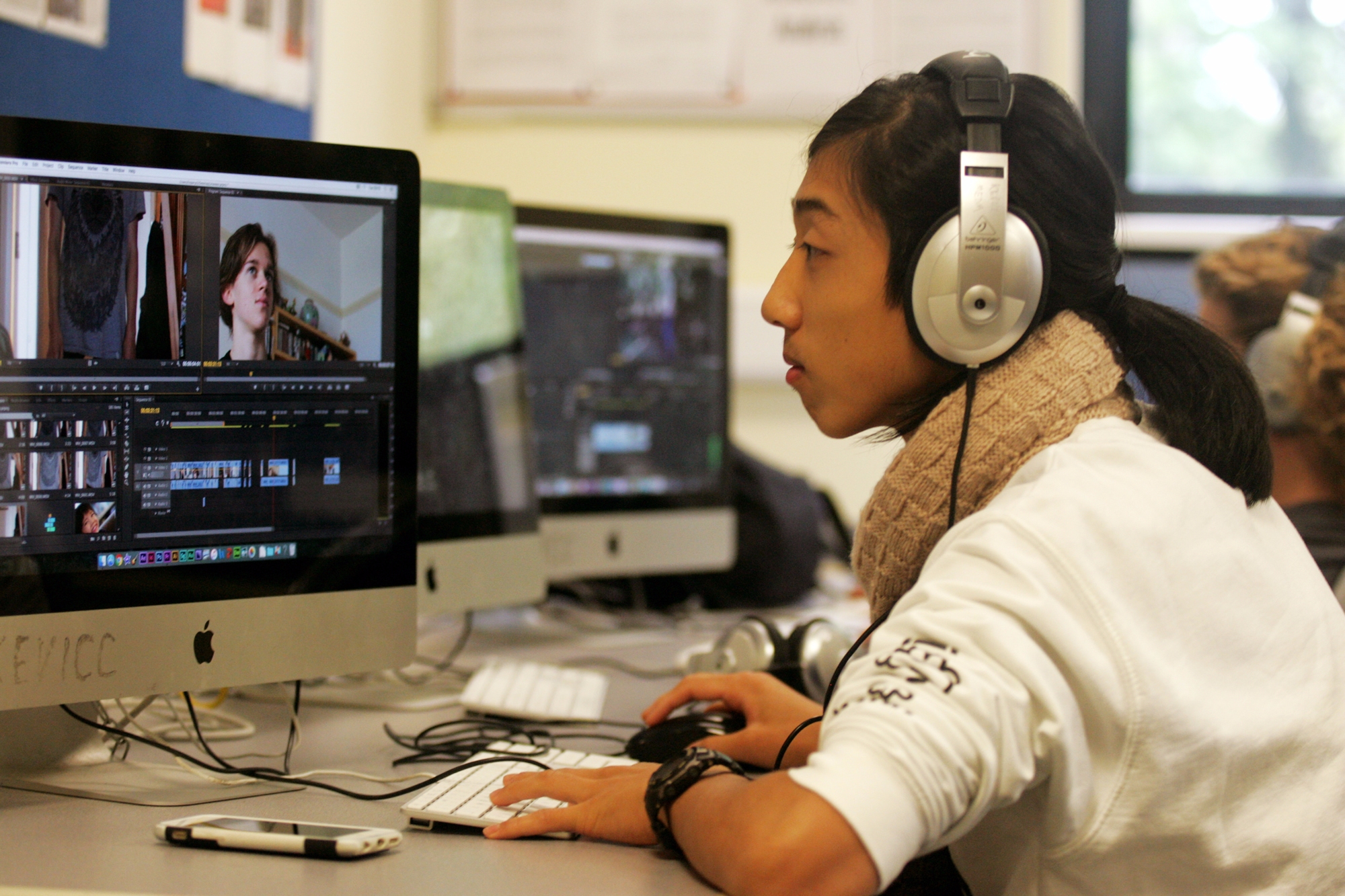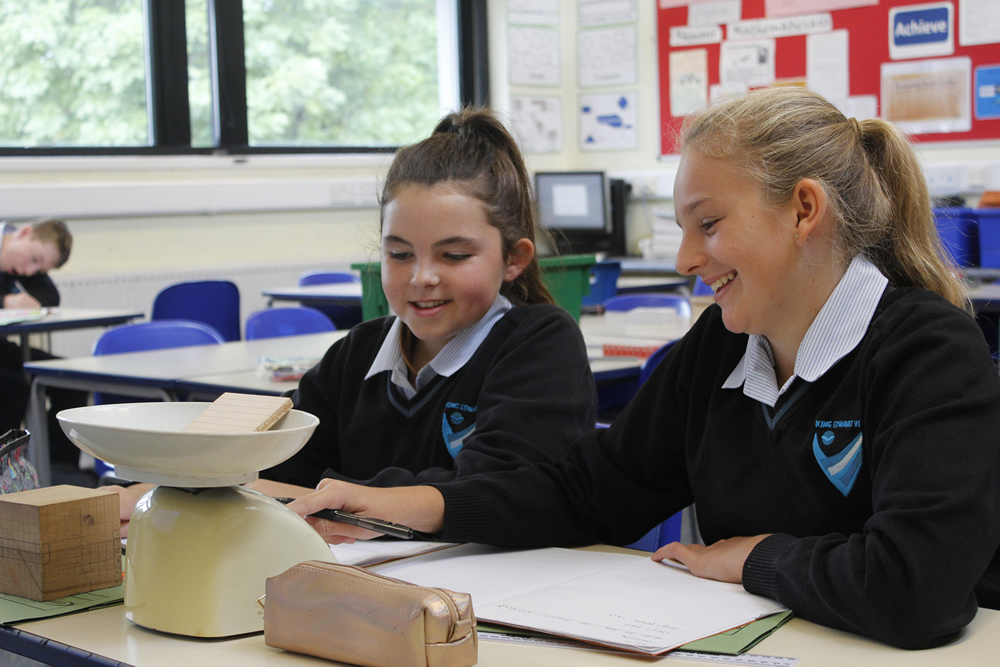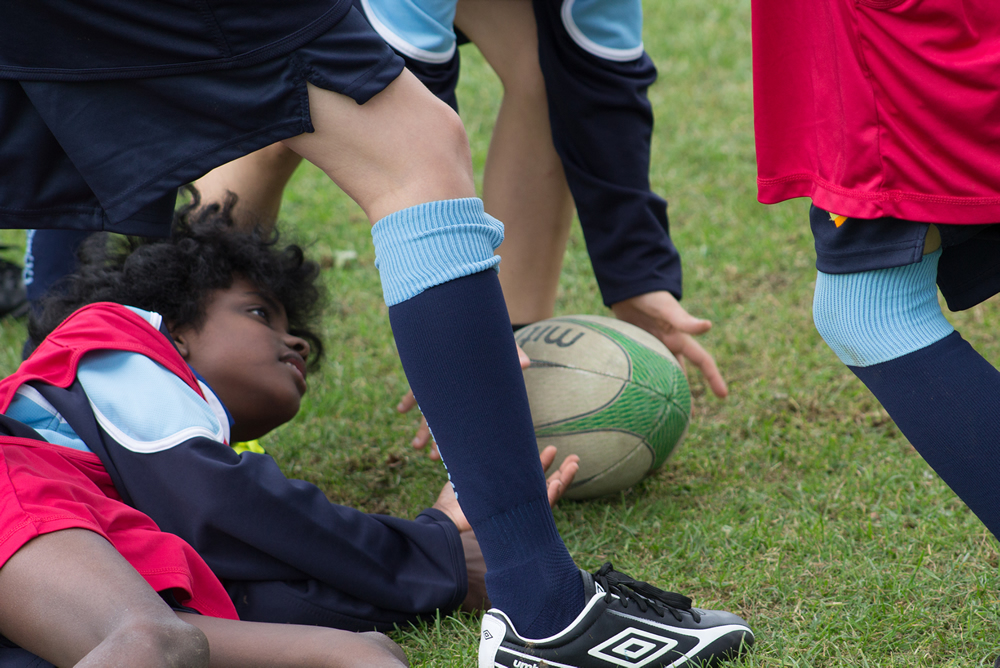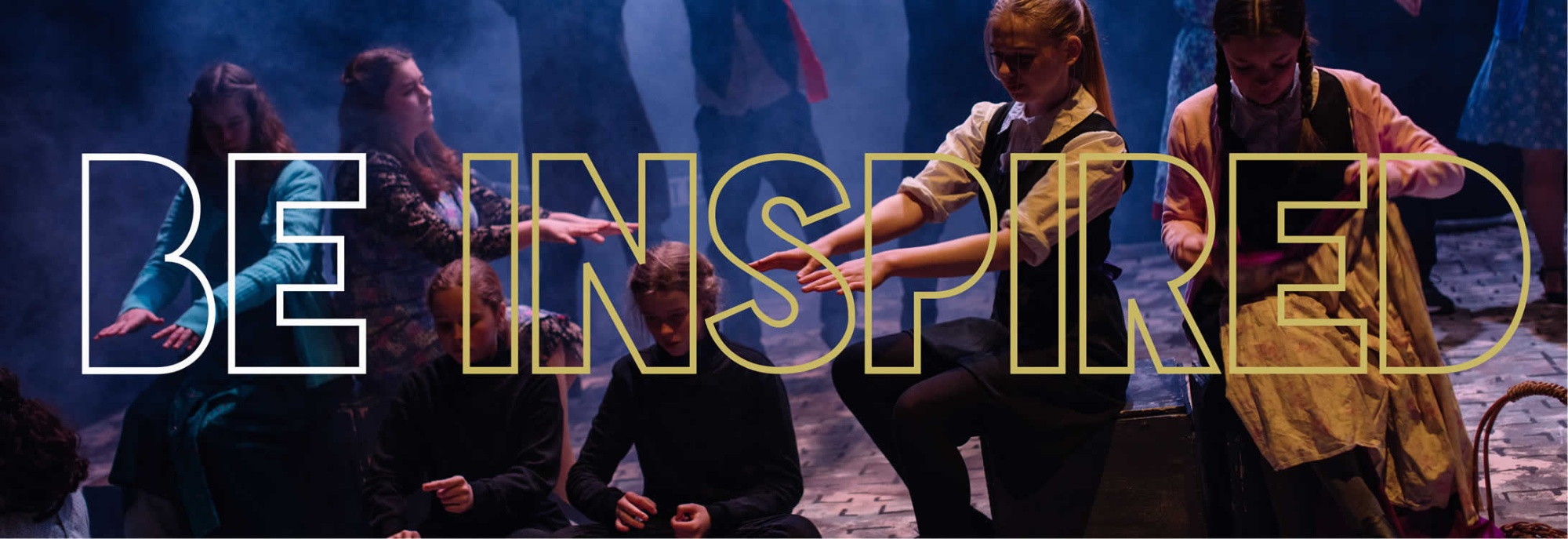Curriculum
Curriculum Intent, Implementation & Impact
We are a comprehensive college of lifelong learners. We are inclusive, kind, and committed to the best for our students, supporting them to flourish.
Curriculum Intent - What are we trying to achieve?
| Lifelong Learners | Committed to the Best |
| Our broad and challenging curriculum enables students to become highly skilled critical thinkers who are deeply knowledgeable about the world. Our ethos promotes a positive mindset for students to become confident communicators who are positive and proactive in moving forward. | Our curriculum is academically ambitious, engaging, and rigorous. It has knowledge and skill acquisition at its heart, enabling an in-depth understanding of a broad range of subjects, building intellectual, creative, social, and physical development. We prioritise high academic standards for every pupil, no matter their starting point. |
| Inclusive & Kind | Promising Futures |
| We support pupils to become caring and compassionate contributors to society, who respect diversity and value social justice. Our students are respectful of human dignity and the planet. They have a clear understanding of their rights and their roles & responsibilities within our community & beyond. | Our pupils develop in cultural capital through a wide range of experiences beyond the classroom, contributing to their readiness for the future. Our aspirational programme of careers information, advice & guidance, supports them to navigate progression routes with confidence. |
Curriculum Implementation - How will we achieve our intent?
| Curriculum & Assessment | Pedagogy |
| Our curriculum defines the component substantive & disciplinary knowledge to be learnt in a coherent sequence, leading to a lasting change in long-term memory. Assessment is well-focused on capturing key knowledge, with feedback used as a powerful tool to advance learning. Our curriculum is ever-evolving. Staff meet regularly to examine learning aims, and outcomes and to ensure clarity & consistency of delivery. | Our pedagogical principles exemplify expert teaching strategies and approaches that are evidence-based and promote full cognitive participation from all pupils. Teachers frequently check all pupils’ understanding, positively discriminating towards disadvantaged & SEND pupils whose needs are carefully considered. Teaching routinely makes use of, but does not create over-reliance on explicit models & scaffolds. |
| Culture & Engagement | Graduated Response |
| All staff have the highest expectations for what each pupil can achieve, no matter their starting point. Pupils are expected to strive to be the best version of themselves, reflecting on and learning from their mistakes. Pupils are held accountable for showing pride in their work, and classroom environments promote high aspirations. Strong routines, strong relationships, and the least invasive correction reinforce positive student behaviour. | Teachers use pupil passports to know individual SEND students’ needs and use pedagogical principles to plan in-class adaptations & interventions. Strategies are noted on the graduated response tracker, implemented in the classroom and impact reviewed at least half-termly by teachers in their “plan, do, review” approach. A range of adaptive teaching strategies are employed to meet the needs of all pupils. |
| Enrichment | Literacy |
| All pupils become increasingly culturally literate through an ambitious curriculum and a varied enrichment programme including trips and educational visits. All students are encouraged to participate beyond the classroom. Disadvantaged pupils are actively recruited and supported financially to engage in trips, music lessons and a varied range of clubs routed in the arts, sports and beyond. | It is every person’s right to be able to read and write. Our literacy provision ensures that students are well-equipped. |
| Reading | Student Leadership |
| We read to strengthen pupils’ reading fluency & vocabulary, to inspire a wider understanding of the world and access to the full curriculum. | Our range of leadership and voice activities improve students’ learning as well as help them to develop the skills and traits needed for success outside the classroom. |
| Rights Respecting School | Careers Education |
| Using the UN Convention on the Rights of the Child as a guide, we work to embed values enabling students to lead happy, healthy lives and to be active citizens. | Our careers programme runs from Year 8 to Year 13, to inspire, challenge and prepare each pupil for the next stage in their progression. |
Curriculum Impact - How will we know if we are successful?
Well-timed, planned and moderated assessments capture key knowledge to be learnt and highlight gaps in understanding. Effective feedback ensures students know what they need to do to move learning forward, and responsive teaching quickly clarifies misconceptions. Teachers use assessment data to inform teaching, curriculum development and any necessary additional provisions.
| Outcomes | Destinations |
| Our pupils demonstrate pride and a love of learning. Behaviour incidents & exclusions steadily decline. | Increasingly our pupils’ attendance improves year-on-year and PA declines to be in line with national. |
| Stakeholder Voice | |
| All pupils, parents & carers have the opportunity to be heard and have a say in shaping the future of our school. | |
Curriculum Model
Our curriculum Model ensures all students receive the support needed to become lifelong learners, committed to the best who are kind and Inclusive with promising futures.
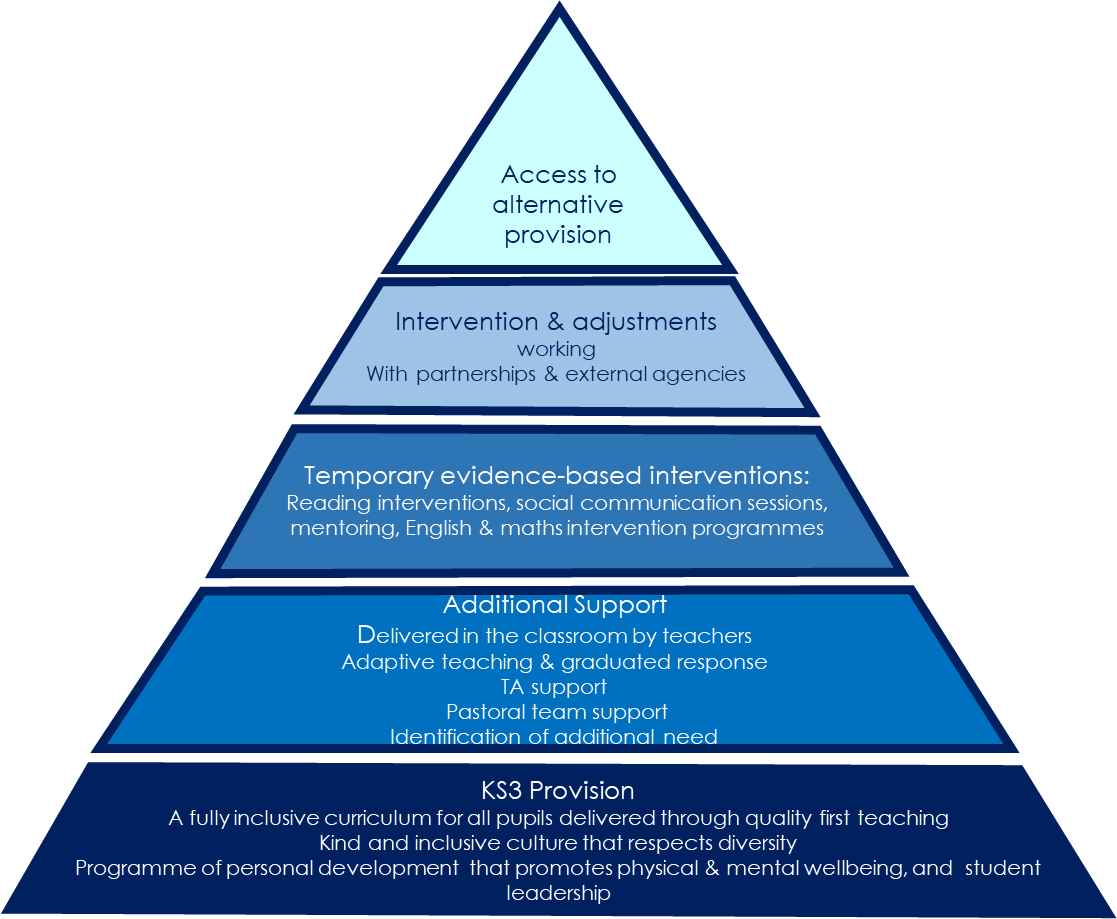
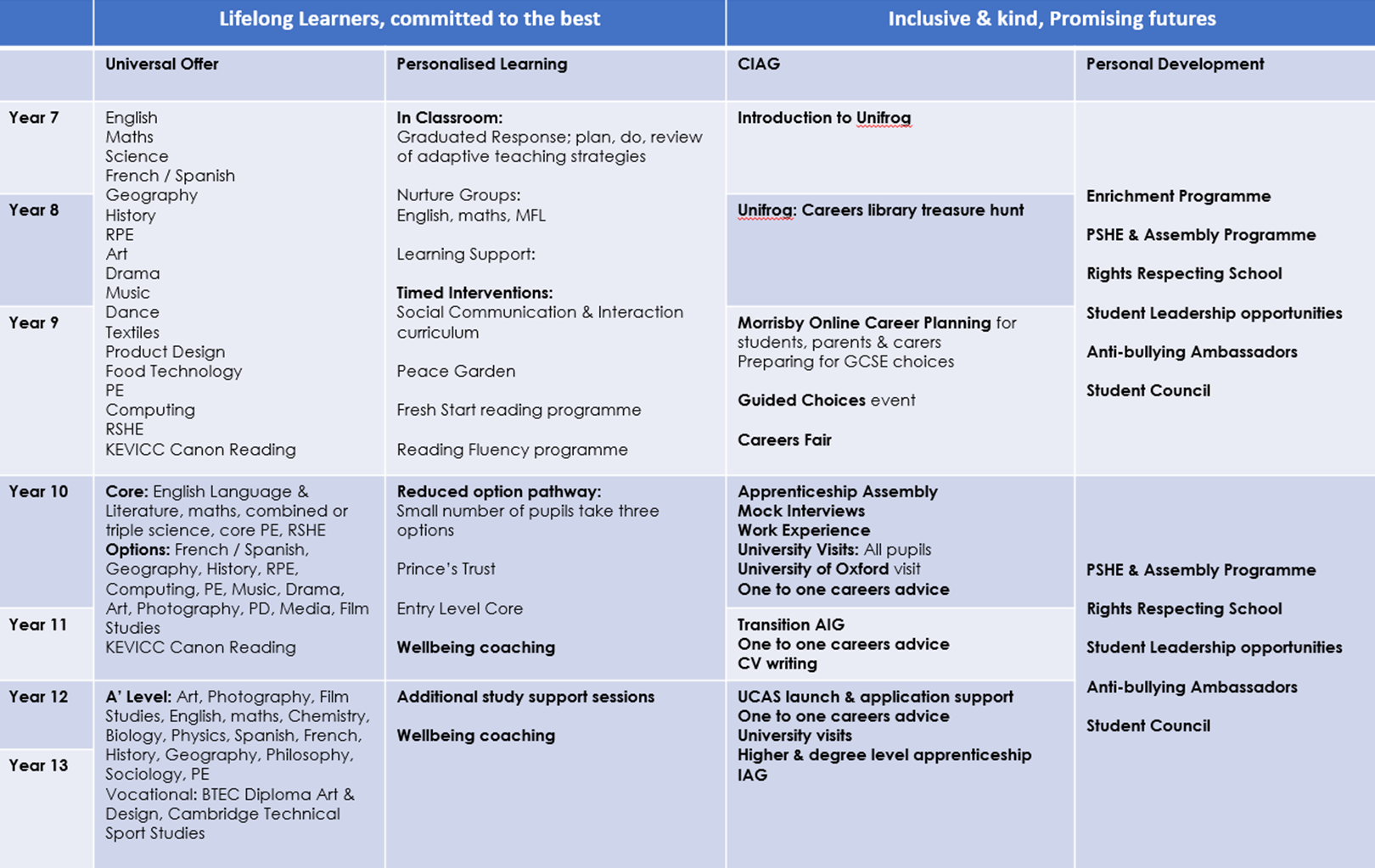
Our learning and teaching policy can be downloaded here.


